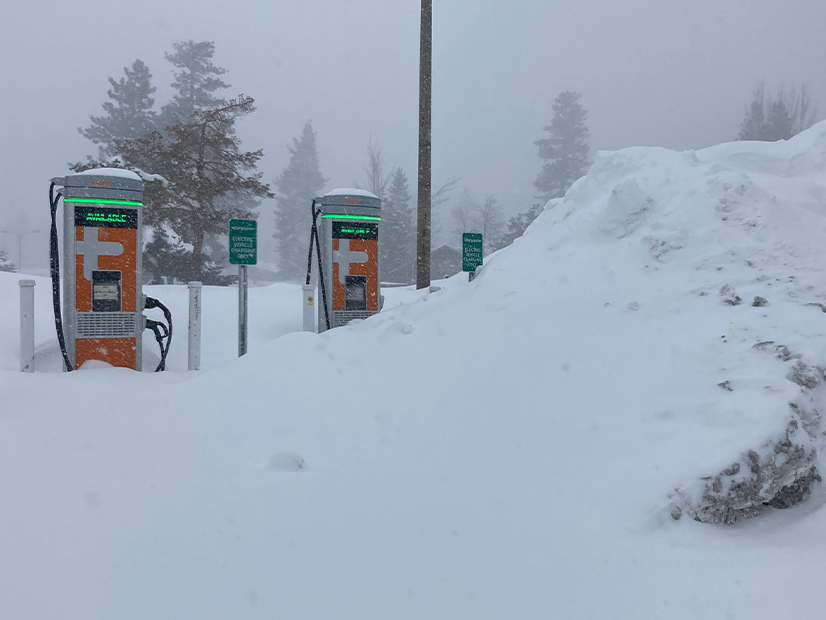
Electric vehicle drivers encounter a wide range of issues when they visit public charging stations, and researchers from the University of California, Davis, plan to delve into the causes of charging failure through a three-year study of thousands of chargers.
The California Energy Commission this month approved a $953,168 contract with UC Davis to conduct the study.
Researchers will test 3,600 or more public EV chargers across California, including in rural and urban areas and low-income and disadvantaged communities. They will create a standardized charger-testing procedure that can be used in future studies and will make comparing data from different studies easier.
Dustin Schell, an air resources engineer at CEC, called the study “the largest single attempt to understand the reliability of the public charging network that CEC staff are aware of.”
“This agreement will help fill a major gap in our understanding of the actual reliability of EV chargers operating in California,” Schell said during a commission meeting.
CEC has been supporting the state’s transition to electric vehicles through funding EV charging infrastructure projects.
CEC Chair David Hochschild said the study is “an incredibly important step.”
“Charger reliability is fundamental to our strategy, and I think even the perception of not having a reliable network itself is very damaging,” Hochschild said.
‘Uptime’ Debated
Schell said charger reliability is often gauged by “uptime,” which is generally considered to be the percentage of time the charger is operational and available to deliver electricity upon customer request.
But uptime is only one piece of the puzzle.
“A large number of documented failures-to-charge occur when the charger is in an apparent operational state,” Schell said.
Gil Tal, director of the Electric Vehicle Research Center at UC Davis, said EV charging companies receive a digital signal from their public chargers indicating the unit is operational. The companies use that data in reporting their charger uptime.
But an EV driver might not be able to charge due to a variety of reasons, said Tal, who is leading the CEC-funded study. The charger could be blocked by another vehicle or, as was the case along mountain roads last winter, by a pile of snow.
The connector might be dented because someone ran over it, Tal said. Or troubles with the payment system may stop a driver from charging.
“The story is much more complicated than just on and off,” Tal told NetZero Insider.
The study will assess the ability to charge a variety of EVs at different charging stations. The focus will be on DC fast chargers. Students at UC campuses across the state will be trained to test the chargers.
The charging of Tesla vehicles at Tesla stations also will be evaluated. And Tal said he hopes to be able to test charging of non-Tesla EVs at Tesla charging stations. Tesla announced in February that it would make at least 7,500 chargers in its network available for non-Tesla EVs by the end of 2024.
UC Davis will provide interim reports to the CEC each year as well as a final report. Based on their findings, researchers will recommend ways that charging providers can improve the reliability of public chargers.
Bay Area EV Charging Studied
The UC Davis study follows a report on EV charging reliability from UC Berkeley researchers last year.
The study, headed by David Rempel, looked at 657 chargers at 181 charging stations throughout the San Francisco Bay Area and found 22.7% were non-functioning. Reasons included unresponsive screens, failure to start charging, payment system issues, network failures or broken connectors.
In another 4.9% of chargers, the cable was too short to reach the inlet on the EV.
The researchers said their findings “appear to conflict” with the 95% to 98% uptime reported by charging station operators.
Tal at UC Davis called the earlier study “really important.”
“Now we need to go to the next level and do it in a more rigorous way,” he said.



